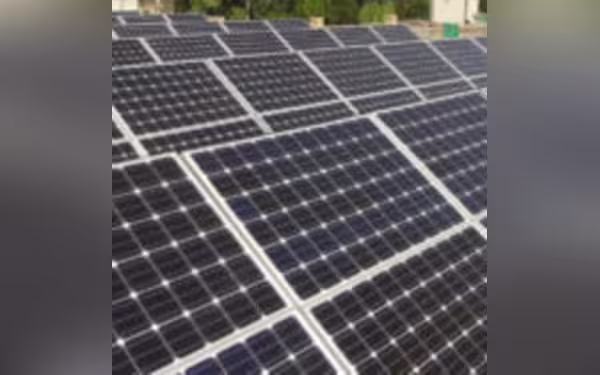Sunday, December 22, 2024 02:24 PM
Government Considers Reducing Rooftop Solar Buyback Tariff in Pakistan
- Proposed tariff cut from Rs21 to Rs7.5-11 per unit.
- IMF urges demand stimulation for grid electricity.
- Rooftop solar users may face increased nighttime charges.
 Image Credits: pakistantoday
Image Credits: pakistantodayPakistan government plans to cut rooftop solar buyback tariff, raising concerns over solar energy adoption amid rising electricity costs.
The government of Pakistan is currently contemplating a significant reduction in the buyback tariff for electricity generated by rooftop solar panels. This proposed change would see the tariff drop from the existing rate of over Rs21 per unit to a range of Rs7.5 to Rs11 per unit. This decision comes under the net metering system, which allows consumers to export excess electricity generated from their solar panels back to the national grid.
At present, consumers who send electricity back to the grid are compensated at a rate of two rooftop solar units for every one grid unit consumed. However, this ratio is expected to be altered, potentially changing to six solar units equating to one grid unit. The International Monetary Fund (IMF) has expressed concerns regarding the declining use of grid electricity in Pakistan, attributing this trend to the rising popularity of solar energy solutions. The IMF has urged the government to stimulate demand for grid electricity as part of broader economic stabilization measures.
In light of these developments, the government is anticipated to approach the National Electric Power Regulatory Authority (NEPRA) to finalize the new rates. Officials from the Energy Ministry have indicated that rooftop solar users might face a charge of Rs60 per unit for grid electricity during nighttime or peak hours, a notable increase from the current rate of Rs42 per unit. This strategy appears to be aimed at reducing the excessive dependence on rooftop solar systems, which has intensified the issue of capacity payments to power producers as more households and industries transition to solar energy.
The surge in electricity tariffs, which have escalated by 155% over the past three years, has been a driving force behind the shift towards rooftop solar. A recent study titled “The Great Solar Rush in Pakistan” revealed that the country imported solar panels worth 15GW from China in the previous fiscal year, amounting to $2.1 billion. Additionally, K-Electric has recently secured a bid of 3.1 cents per unit for its solar plant, which could serve as a benchmark for the revised buyback tariff.
While the government's move to reduce the buyback tariff may be seen as a necessary step to stabilize the energy sector, it raises questions about the future of solar energy adoption in Pakistan. As the country grapples with rising electricity costs and the need for sustainable energy solutions, finding a balance between encouraging renewable energy and ensuring the viability of the national grid will be crucial. The ongoing dialogue between the government, regulatory bodies, and consumers will play a pivotal role in shaping the future of energy in Pakistan.













